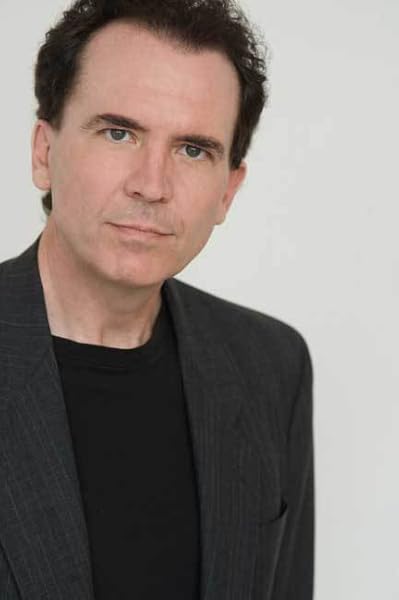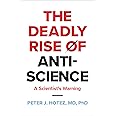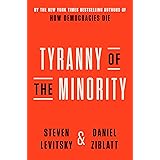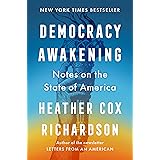
Enjoy fast, free delivery, exclusive deals, and award-winning movies & TV shows with Prime
Try Prime
and start saving today with fast, free delivery
Amazon Prime includes:
Fast, FREE Delivery is available to Prime members. To join, select "Try Amazon Prime and start saving today with Fast, FREE Delivery" below the Add to Cart button.
Amazon Prime members enjoy:- Cardmembers earn 5% Back at Amazon.com with a Prime Credit Card.
- Unlimited Free Two-Day Delivery
- Streaming of thousands of movies and TV shows with limited ads on Prime Video.
- A Kindle book to borrow for free each month - with no due dates
- Listen to over 2 million songs and hundreds of playlists
- Unlimited photo storage with anywhere access
Important: Your credit card will NOT be charged when you start your free trial or if you cancel during the trial period. If you're happy with Amazon Prime, do nothing. At the end of the free trial, your membership will automatically upgrade to a monthly membership.

Download the free Kindle app and start reading Kindle books instantly on your smartphone, tablet, or computer - no Kindle device required.
Read instantly on your browser with Kindle for Web.
Using your mobile phone camera - scan the code below and download the Kindle app.

OK
 Audible sample Sample
Audible sample Sample 


The War on Science: Who's Waging It, Why It Matters, What We Can Do About It Paperback – May 17, 2016
Purchase options and add-ons
The result is an unprecedented erosion of thought in Western democracies as voters, policymakers, and justices actively ignore the evidence from science, leaving major policy decisions to be based more on the demands of the most strident voices.
Shawn Lawrence Otto's provocative new book investigates the historical, social, philosophical, political, and emotional reasons for why and how evidence-based politics are in decline and authoritarian politics are once again on the rise, and offers a vision, an argument, and some compelling solutions to bring us to our collective senses, before it's too late.
- Print length514 pages
- LanguageEnglish
- PublisherMilkweed Editions
- Publication dateMay 17, 2016
- Dimensions6 x 1.25 x 9 inches
- ISBN-101571313532
- ISBN-13978-1571313539
The Amazon Book Review
Book recommendations, author interviews, editors' picks, and more. Read it now.
Frequently bought together

Customers who viewed this item also viewed
Editorial Reviews
Review
"Otto's masterful account of how one of the worst wars in history is being conducted and how we should counter it deserves the attention of all those who desire to advance the human experiment." --Rod Cooper, Prof. emeritus of Psychology, U Calgary
"A big, bracing battle cry." --Bulletin of the Atomic Scientists
"There is probably no one in the world who has a better grasp of the current anti-science, anti-intellectualism that is running rampant in America today." --Larry Lazar, customer review
About the Author
Product details
- Publisher : Milkweed Editions (May 17, 2016)
- Language : English
- Paperback : 514 pages
- ISBN-10 : 1571313532
- ISBN-13 : 978-1571313539
- Item Weight : 1.5 pounds
- Dimensions : 6 x 1.25 x 9 inches
- Best Sellers Rank: #623,552 in Books (See Top 100 in Books)
- #1,644 in Evolution (Books)
- #2,027 in History & Philosophy of Science (Books)
- #15,573 in Philosophy (Books)
- Customer Reviews:
About the author

Shawn Otto was awarded the IEEE-USA ("I-Triple-E") National Distinguished Public Service Award for his work elevating science in America's national public dialogue. He is cofounder and producer of the US presidential science debates at sciencedebate.org and the only person to get Donald Trump to answer science questions during his presidential campaign. He is the award-winning author of The War on Science, which has been called "a game changer, and probably the most important book you'll read this year." He is also an award-winning screenwriter and novelist, best known for writing and co-producing the Academy Award-nominated movie House of Sand and Fog, and the LA Times Book Prize finalist literary crime novel, Sins of Our Fathers. He has advised science debate efforts in many countries and speaks worldwide on the critical role of science, evidence, and objectivity in free societies. He lives in Minnesota with his wife, Rebecca Otto, in a solar and wind-powered green home he designed and built with his own hands. The couple have one son, Jacob.
Customer reviews
Customer Reviews, including Product Star Ratings help customers to learn more about the product and decide whether it is the right product for them.
To calculate the overall star rating and percentage breakdown by star, we don’t use a simple average. Instead, our system considers things like how recent a review is and if the reviewer bought the item on Amazon. It also analyzed reviews to verify trustworthiness.
Learn more how customers reviews work on Amazon-
Top reviews
Top reviews from the United States
There was a problem filtering reviews right now. Please try again later.
As the author notes, science “takes nothing on faith, science is inherently antiauthoritarian, and a great equalizer of political power. That is why it is under attack.” Otto gives us the history of science going back in time to the 1600s when American was first settled by the Europeans. We learn the role science played in the protestant reformation, and the contributions by the “Islamic keepers of science.” More recently, we see the distrust of science that formed during the development of the atomic and hydrogen bombs, the cold war, and the cloistered nature of scientists in the mid-twentieth century. Otto makes an important point at this point: “Democracy is, as we know, rooted in science, knowledge, and the biology of natural law. But most of our elected leaders have not had significant training in science, or, more importantly, in how the foundational ideas of modern law and democracy relate to, and grew out of, science.” And this is a problem today. We can see the public’s perception of science slide in recent years: by 1999 about 47 percent of Americans agreed that scientific achievements were very important, by 2009 the figure dropped to 27 percent. In 1994, Congress eliminated funding for the Office of Technology Assessment as part of a budget-cutting package. To add insult to injury congressional staffers turned to lobbyists and the Internet for science information – yikes.
Part II delves into the history of modern science politics. A shocking revelation to me was that after Einstein won the Nobel Prize in 1921, right-wing relativity deniers were on the rise – really! The concluding chapter in this section covers the vaccine scare, Polio misinformation, and the rise of yellow and gonzo journalism – all interesting stuff.
In Part III, the author elaborates on what he calls the three-front war on science. The first major front in the war is the “identity-politics or postmodernist front, waged by academics and the press.” This part got a bit philosophical for me and was somewhat intellectually dense. Postmodernists apparently view all of science as a sort of public-relations campaign by the elite and that truth is subjective, not objective. The second front is an ideological one. Here we have the attack on evolution via creationism, the vaccine controversy, and the sex-education controversy. The author describes a third front in the war: the industrial war on science. From Rachel Carson’s environmental concerns through the decades long fight by industry against climate science, Otto presents a very compelling account about this aspect of the war on science. I found this section very interesting and shocking at the same time. It is unbelievable what efforts and extent some will go to in order to protect their selfish interests. It is in this section that the author presents a “seven stage method of cloaking rhetorical arguments in the language of science legitimacy in order to influence public perception and effect a desired policy objective.” After reading this, it is no wonder that people are truly confused on scientific issues. The denial engine is incredible. One big topic of discussion in the book is climate science denial. Here the author lists the top ten climate-denial talking points, and goes on to present a wealth of information on this topic.
In the concluding chapters, Otto explains over several chapters what needs to be done to win this war. In chapter twelve, he presents fourteen battle plans that need to be implemented in order to do this.
I have thoroughly enjoyed this brief tour “of the vast intellectual, ideological, and economic war on science.”
Science, the greatest of human endeavors ever, which brought about the modern era and the age of Enlightenment, which is responsible for the incredibly high standard of living and the democratic system of government we enjoy in the West, which is the single most important factor making the difference between the First- and Third-World countries, is under attack in the West on multiple fronts. It is attacked by post-modernist deconstructionist academia, by fundamentalist religious movements, by industrial economic interests and their hired PR firms, by interested online pushers of pseudo- and alternative science and their believers, by politicians on the right who would rather have things go as before, by politicians on the left who resent science's claim to sounder knowledge, by the media that presents scientific results as just opinion, by Hollywood, that portrays scientists as dangerous malevolent madmen,or, at best, weird geeks, and by science-illiterate parents and educators who'd rather dismiss its value and demonize it's effects.
The book is a wake-up call before the demise of the modern era as we know it---based on scientific evidence and led by true democracies. Yet it's not your common-variety alarmist doomsday prophecy; rather, it's a cool-headed analysis of the current dangerous processes in the West and plans of action to halt them. All who cherish true progress and the values that drive it should enlist and join the battle. What is at stake is nothing less than our freedom, our civil right to true knowledge, our most successful system of government so far and our planet habitability.
Having said all that, I wish the book was some 50% shorter. In my opinion this could have been achieved without sacrificing any essential contents---just by avoiding endless and tiresome repetitions of things already amply reiterated. Twice is better, thrice is best, the fourth time is annoyance.
Top reviews from other countries
"The dissociation from history and the hard-won knowledge of science thus led to a generation of leaders who are at once arrogant and ignorant, and thus likely unable to lead the world out of the morass. We embrace the form of tradition but not the substance, focused only on winning, unable to discen between what feels good and what is true. It is a condition that threatens leave the world permanently damaged."
Is this about to bite us "in the behind" now? Despite the title actually a very sober but informative and erudite discussion about history of the ascendancy of government-funded science, what drove it (hint: The bomb...and Vannevar Bush), why scientists disengaged from the public (and the public from science) and why it is important for scientists once again to be more part of the society! For their own sakes as well as the society's.
Shawn Otto does not see it like this. In his world, scientists, and especially 'experts' are to be respected and believed. In his world there is 'consensus' between 'experts', but unfortunately that is not the real world position; rather we are apt to find that 'experts' are promoted by the media, and by political factions, and institurions with power, while those that disagree with the (politically expedient) 'accepted' view are 'discredited'. By what authority are they discredited? By the High court of science? There is no such thing. Even scientific journals like Nature and Science now carry Editorials that push an 'accepted' point of view, usually unsigned and without any proper debate about the alternative view of other scientists.
A key example, referred to in his book, is the Vaccination debate. Andrew Wakefield is here the 'discredited' scientist who proposed, and still believes, that the MMR vaccine can cause autism. The key word is CAN, because Wakefield never claimed that all autism is caused by vaccination, far from it, he was interested in a subset of children. Wakefield's evidence was never discredited (he made no great claims); but it was other aspects of his life that were picked on to 'discredit' him - he took blood samples without proper permission, he was financed by certain organisations. These issues, while raising questions about he man, do not in any way prove his ideas to be wrong; and the fact that top American courts have now awarded huge (million dollar) compensation to the families of several children whose autism they deemed to have been caused by MMR vaccination should make us think again about this matter. Meanwhile, no studies have been done to compare the rate of autism in vaccinated and unvaccinated children - that would be the obvious scientific approach, but there is too much at stake, as those in control have quietly deemed it acceptable to cause a few deaths in the interest of saving thousand of deaths from measles. This is an interesting case of the well known 'trolley problem'. Most people would not push a man to his death to save several others, but they would let an accident happen instead. The public must not know that some innocent children are, almost certainly, being killed to save the lives of many - they would not be happy about it, and would think primarily of their own children first.
Another key issue is of course climate change. According to the author, we all know that climate change is being caused by fossil fuel use, and consequent carbon dioxide emissions, so Donald Trump is just crazy to deny the fact and want continued use of coal in power stations. In reality, Trump's main argument is with the Paris climate agreement, from which he withdrew america simply because he does not agree with America financing developing countries - some of them rich - to shift to renewable energy sources on the grounds that they are need to be compensated for their loss of 'the chance to have their own industrial revolution'. This is a very different matter, and one that many Americans agree with. He also sees a chance to reverse the damage done to mining communities, and manufacturing communities in the states. When I think of the enormous damage done to communities and families in the UK by prime minister Margaret Thatcher's decision to end coal mining, and the ongoing bitterness felt in those communities, I have a lot of sympathy for a view that puts society (there's not such thing as society said Thatcher!) before short-term economic reasoning - such changes should be phased in slowly in a way that keeps communities happy, with training and new jobs. I could raise many other relevant points. The role of carbon dioxide in global warming for example is complex and far from understood - take a look at the website of a man once destined possibly to be our new David Attenborough - David Bellamy. Once a nature documentary maker, he claims he has been dropped by the BBC because of his stance on global warming. His understanding of the subject goes far beyond that of most people, even most scientists, with an analysis of the conflicting effects of carbon dioxide at different heights in the atmosphere that most people have probably never even considered. The truth is that there is no such thing as a 'greenhouse gas' since no gas can reflect infra red; rather it absorbs and re-radiates, which changes the whole concept, since carbon dioxide at high altitude actually increases heat loss into space by radiating in all directions equally rather than reflecting it back.
I'm not saying that man-made global warming is not occurring; just that it isn't as obvious as some would have us believe. I do believe, as do many, that vaccines cause some cases of autism. I'm a scientist, and all too aware of the tragic list of mistakes made by science over the last two hundred years to ever trust 'expert consensus'. Think displaced wombs, floating kidney, labotomy, 'Silent Spring' (DDT), nuclear fallout from testing, Windscale, the Bohpal disaster - and of all the 'cover ups' for political expediency.
Even the issue of 'Intelligent Design', is far from being a cut and dried case, though that is not to say that I have much sympathy for those in America who deny evolution because of faith (though for the really deep science of faith read the excellent book by David Sloan Wilson, 'Darwin's Cathedral). These are a topics on which I consider myself an expert, having been deeply involved for twenty-five years in Genetics and Evolution. Evolution is a fact. That it occurs through 'natural selection' is (in real scientific circles) far from being a fact, and Darwin himself, acknowledging that he did not know the source of the generational change so essential to any theory of evolution, tended to favour the views of Lamarck, and had his own hypothesis for inheritance of acquired characteristics based on 'gemmules'. Today, leading scientists like Eva Jablonka (see 'Evolution in Four Dimensions') are putting forward ideas (including those on epigenetics) about evolution that look likely to displace the current 'Modern Synthesis' (which incidentally was never agreed on by the main scientists mentioned in what was in fact the title of a book by writer Julian Huxley).
Shawn Otto is a science writer, not a scientist, and I'm afraid his misplaced trust is dangerous. We need more questioning by the public; more skepticism, not less. Above all we need more education and conversation around the true nature of the scientific method and the compromised position of most scientists today. Once, scientists were men of 'independent means'; seekers of truth. Today most are given a project, and seek to further their careers through their actions in a tough world. We need to support the Mavericks - at least to give them a fair hearing. Anyone seeking a grant to research, for example, autism, is much less likely to get it than someone seeking to develop a pill to cure autism - for obvious reasons. Research is funded by institutions, and institutions are not strong on moral values. We need to find a way to get back to real science.
One area that I am pleased to see Otto emphasise is the Ideological war, and in particular Postmodernism, which has been condemned by many top scientists. There are however, many other books on this topic, especially in relation to the take over of Universities by a generation of professors who grew up with postmodernism, that go into the topic in great depth. Again, I must blame scientists for not fighting back hard enough against their misguided colleagues in 'the humanities'.









